Results
-
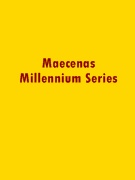 £88.95
£88.95Downtown Diversions (Concerto for Trombone and Wind Band) (Trombone Solo with Concert Band - Score and Parts) - Gorb, Adam
The piece all trombonists have been shouting for; a triumph of Gorb's stylish, almost casual brilliance, immaculate timing, melodic invention and instinctive mastery of resources. Scoring is deft, even delicate, the solo writing rewardingly characteristic while avoiding all those cringe-making trombone clichs. The gently swung, bluesy second movement is some of the best cod Jazz you will ever hear. A delight on every page and all done with the lightest of hands.Please note: This set of parts does not include music for the soloist. A piano reduction including solo part is available for purchase separately.Duration: 17:30
Estimated dispatch 7-14 working days
-
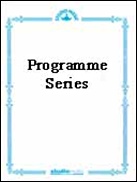 £49.95
£49.95LEGEND, The (Programme Cornet Solo with Concert Band) - Wiffin, Rob
A gentle and reflective cornet solo written for a cornet "legend". There are no great technical demands in the solo, but musically it will demonstrate the soloist's control and ability to shape phrases. Soloist Grade 4, Band Grade 3. Duration: 3:34
Estimated dispatch 7-14 working days
-
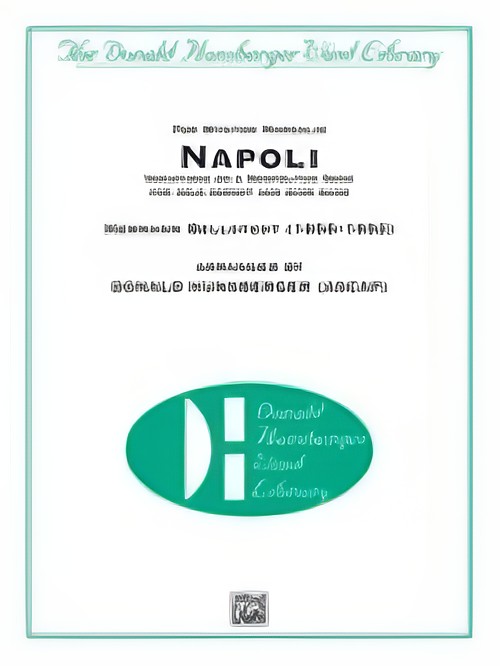 £135.95
£135.95NAPOLI Variations on a Neopolitan Song (Cornet Solo with Intermediate Concert Band) - Hunsberger, Donald
Born in Germany, Hermann Bellstedt immigrated to America in 1867, where his family settled in Cincinnati. A prodigy on the cornet, he played with Patrick Gilmore as cornet soloist and assistant to the famous Ben Bolt, and, in 1904, joined the Sousa Band, playing alongside Walter Rogers and Herbert L. Clarke. Bellstedt's variations on Napoli feature the popular Neopolitan song "Finiculi, Finicula" (composed by Luigi Denza in 1880) that celebrated the funicular railway built up the side of Mt. Vesuvius in 1880. Other popular Amalfi Coast songs include "'O Solo Mio" and "Torna a Sorriento." A variety of solo textures, whimsical to intense, are demonstrated by this Donald Hunsberger arrangement dedicated to Wynton Marsalis as a part of the "Carnaval" project. A grandiose opportunity to feature your cornet or trumpet soloist! (5:45)
Estimated dispatch 7-14 working days
-
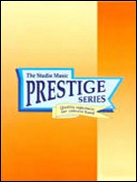 £16.95
£16.95NEAPOLITAN SERENADE (for Solo Flute & Concert Band) (Prestige Concert Band Extra Score) - Ellerby, Martin
Extra Score. This work was especially composed for Rachel Smith and the Regimental Band of Her Majesty's Coldtream Guards. It is essentially rhapsodic in nature and derives much of it's melodic material from the harmonic implication of the 'Neapolitan Sixth' chord - that of the flatten supertonic, mostly found in minor key tonalities. The composer gratefully acknowledges the assistance of Rachel Smith in editing the solo part for both performance and publication. Performance time 5'29" (Recorded on QPRM 149D BRIGHT SUNLIT MORNING, Regimental Band of the Coldstream Guards)
Estimated dispatch 7-14 working days
-
 £82.95
£82.95NEAPOLITAN SERENADE (for Solo Flute & Concert Band) (Prestige Concert Band Set) - Ellerby, Martin
Score and Parts. This work was especially composed for Rachel Smith and the Regimental Band of Her Majesty's Coldtream Guards. It is essentially rhapsodic in nature and derives much of it's melodic material from the harmonic implication of the 'Neapolitan Sixth' chord - that of the flatten supertonic, mostly found in minor key tonalities. The composer gratefully acknowledges the assistance of Rachel Smith in editing the solo part for both performance and publication. Performance time 5'29" (Recorded on QPRM 149D BRIGHT SUNLIT MORNING, Regimental Band of the Coldstream Guards)
Estimated dispatch 7-14 working days
-
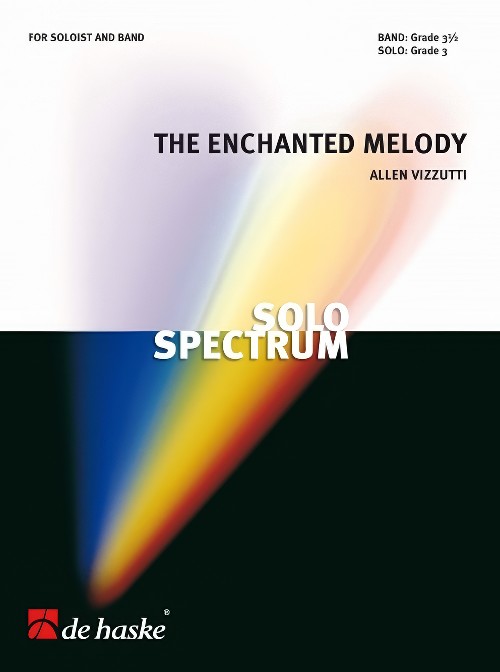 £72.99
£72.99The Enchanted Melody (Flexible Solo with Concert Band - Score and Parts) - Vizzutti, Allen
Solo parts available in C, Bb, Eb and F.The Enchanted Melody was written for young instrumental soloists. It is carefully orchestrated with beauty and colour in mind. All of the parts are important and fun to play. The piece is designed to offer varied musical elements on which ensembles can work to attain higher skill levels without being overly technical or difficult. The solo part will offer some challenge without advanced demands regarding range, technique or endurance. The flowing melody lines and beautiful harmonies will be most pleasing and bring a smile.
Estimated dispatch 7-14 working days
-
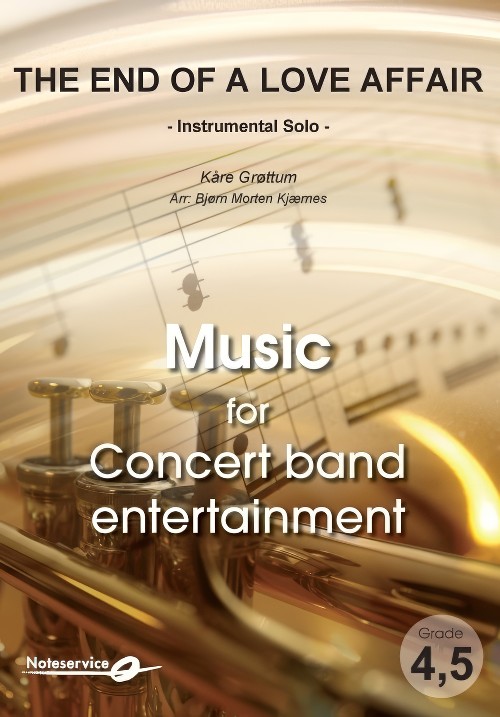 £91.00
£91.00The End of a Love Affair (Flexible Instrument Solo with Concert Band - Score and Parts) - Grottum, Kare - Kjaernes, Bjorn Morten
Kare Grottum is known to most as a pianist and producer by NRK. He was involved in numerous TV productions, both as producer, musician, composer, and arranger. This tune is taken from a CD released in 1992, Fra en musikers dagbok where he brings with him several Norwegian soloists of international class. It is Erling Wicklund who does a brilliant solo on Flugabone which has also used as a starting point for the written improvisation. The arrangement should be played in a slightly swinging way, but not as much as a jazz waltz. Play with the straight eighths and then let it flow, with a faint two against three feeling, which clearly shows up in some places. If you do not have bassoon and oboe, let alto sax and tenor sax make up the duet from 9. Enjoy! Solo Options: C BC Instruments; Bb TC Instruments; Eb TC Instruments. Duration: 4.15
Estimated dispatch 7-14 working days
-
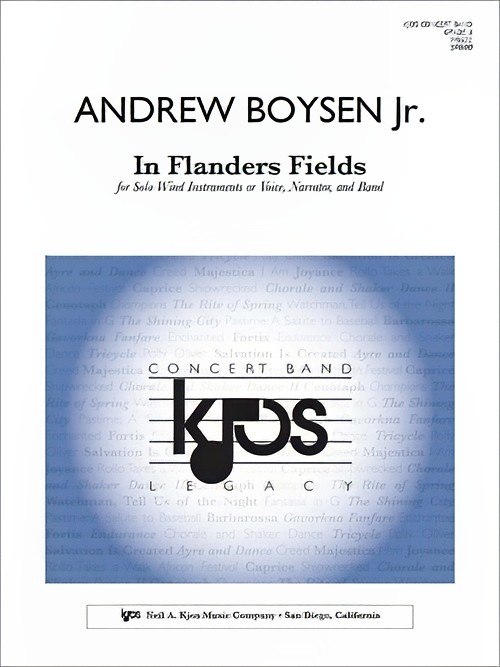 £80.00
£80.00In Flanders Fields (Vocal or Instrument Solo with Narrator and Concert Band - Score and Parts) - Boysen Jr, Andrew
In Flanders Fields can be performed in two ways: with any wind soloist, narrator and band, or with vocal soloist (soprano, alto, tenor, bass) and band. In the first version, the narrator speaks the poignant words of John McCrae's famous poem about the sacrifices of World War I in between phrases from the instrumental soloist. If using a vocalist, the words are sung as lyrics to the instrumental solo melodies. In Flanders Fields is a perfect selection for any patriotic concert.
Estimated dispatch 7-14 working days
-
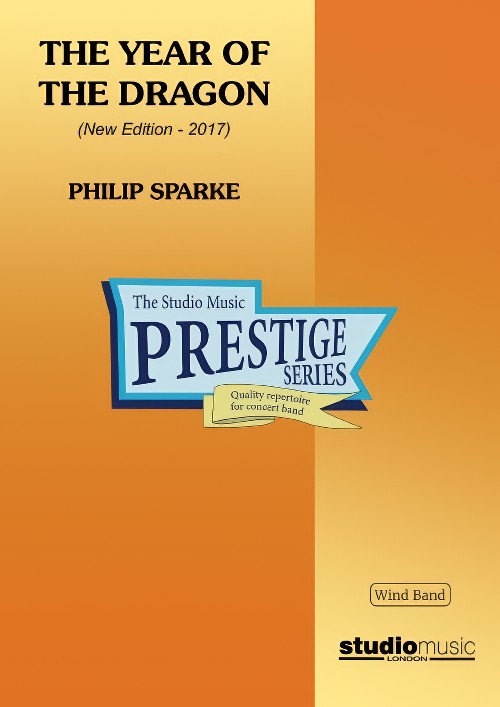 £37.95
£37.95The Year of the Dragon (Prestige Concert Band - Score only) - Sparke, Philip
The 2017 version of The Year of the Dragon was commissioned by the Siena Wind Orchestra and given its world premiere on June 17th 2017 in Bunkyo Civic Hall, Tokyo, conducted by the composer.The original wind band arrangement of The Year of the Dragon was made in 1985, a year after the composer wrote the brass band version. At that time he was still learning the intricacies of writing for wind band (and still is!) and in the 32 years which have elapsed since then, his approach to scoring for the medium has developed and, hopefully, improved.Here are the main differences between the two versions:In the 1980's, the wind band movement was much less international than it is now. British wind bands were still to some extent based on the military band tradition of the time, which tended to use rather smaller instrumentation than the then-dominant American university model. The new version embraces a much more international instrumentation, including low woodwinds and string bass, as well as an expanded percussion section.In the original version there was a touch of naivety in the way the composer wrote for the woodwinds; much of their articulation was transferred too literally from the brass version, resulting in some unidiomatic writing, which he has tried to improve in the new version.In addition to the above, Philip's own compositional style has matured and developed in the intervening 32 years. There are some passages in the original which he simply would not write today - not because they are 'wrong', but because his way of writing has changed. The new version is perhaps how he would have written it today, rather than simply dressing the original version in new clothes.The work is in three movements:Toccata opens with an arresting side drum figure and snatches of themes from various sections of the band, which try to develop until a broad and powerful theme from the middle of the band asserts itself. A central dance-like section soon gives way to the return of this theme, which subsides until faint echoes of the opening material fade to a close.Interlude takes the form of a sad and languid solo for alto saxophone. A chorale for the whole band introduces a brief spell of optimism but the saxophone solo returns to close the movement quietly.Finale is a real tour-de-force for the band with a stream of rapid semi-quavers running throughout the movement. The main theme is heroic and march-like but this is interspersed with lighter, more playful episodes. A distant fanfare to the sound of bells is introduced and this eventually returns to bring the work to a stirring close.
Estimated dispatch 7-14 working days
-
 £199.95
£199.95The Year of the Dragon (Prestige Concert Band - Score and Parts) - Sparke, Philip
The 2017 version of The Year of the Dragon was commissioned by the Siena Wind Orchestra and given its world premiere on June 17th 2017 in Bunkyo Civic Hall, Tokyo, conducted by the composer.The original wind band arrangement of The Year of the Dragon was made in 1985, a year after the composer wrote the brass band version. At that time he was still learning the intricacies of writing for wind band (and still is!) and in the 32 years which have elapsed since then, his approach to scoring for the medium has developed and, hopefully, improved.Here are the main differences between the two versions:In the 1980's, the wind band movement was much less international than it is now. British wind bands were still to some extent based on the military band tradition of the time, which tended to use rather smaller instrumentation than the then-dominant American university model. The new version embraces a much more international instrumentation, including low woodwinds and string bass, as well as an expanded percussion section.In the original version there was a touch of naivety in the way the composer wrote for the woodwinds; much of their articulation was transferred too literally from the brass version, resulting in some unidiomatic writing, which he has tried to improve in the new version.In addition to the above, Philip's own compositional style has matured and developed in the intervening 32 years. There are some passages in the original which he simply would not write today - not because they are 'wrong', but because his way of writing has changed. The new version is perhaps how he would have written it today, rather than simply dressing the original version in new clothes.The work is in three movements:Toccata opens with an arresting side drum figure and snatches of themes from various sections of the band, which try to develop until a broad and powerful theme from the middle of the band asserts itself. A central dance-like section soon gives way to the return of this theme, which subsides until faint echoes of the opening material fade to a close.Interlude takes the form of a sad and languid solo for alto saxophone. A chorale for the whole band introduces a brief spell of optimism but the saxophone solo returns to close the movement quietly.Finale is a real tour-de-force for the band with a stream of rapid semi-quavers running throughout the movement. The main theme is heroic and march-like but this is interspersed with lighter, more playful episodes. A distant fanfare to the sound of bells is introduced and this eventually returns to bring the work to a stirring close.
Estimated dispatch 7-14 working days
